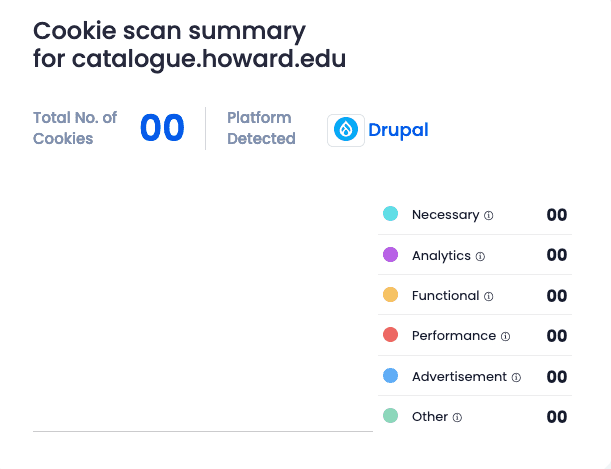Course Catalog GDPR Compliance
January 31, 2024
Hosting your course catalog online opens up a whole new world of possibilities in terms of accessibility, design, and functionality. However, with those expanded capabilities also comes another level of responsibility. One instance of this is user privacy. GDPR is a relatively new regulation that helps govern how personal data can be collected, processed, and used by websites. Although GDPR was primarily published with large corporations in mind, it has implications for all websites, including academic course catalogs.
What is GDPR?
Over the past few years, you’ve likely noticed an increase in the number of pesky pop-up boxes that ask whether you accept cookies from a website. These pop-ups are a prime example of companies adhering to the General Data Protection Regulation (GDPR). The GDPR was established in 2018 by the European Union, though it regulates websites worldwide, including in the United States. Its purpose is to provide privacy control to Internet users and transparency into what data is being collected on them.
GDPR has ten basic requirements, which span from receiving consent from website users, to what data can be collected, to how long that data can be stored. It also gives rights to users, who can request for their personal data to be modified or deleted. Another key component is regulating how personal data breaches are handled and specifies how quickly the breach must be disclosed to the users affected.
How Clean Catalog Sites Adhere to GDPR
By default, Clean Catalog sites do not use cookies for site visitors. That means that, in most cases, your catalog site does not need a cookie consent banner to be GDPR compliant.
 Cookie audit of a Clean Catalog site
Cookie audit of a Clean Catalog site
Along with that, Clean Catalog doesn’t collect data on visitors or site users, and avoids any GDPR compliance issues on storing or retrieving user data.
Despite not having cookies on our sites, Clean Catalog still allows clients to track how their sites are used; we do this by using Plausible Analytics instead of Google Analytics. Plausible tracks basic statistics on how visitors are using your site, but doesn’t track any information about the users themselves.
Adhering to GDPR requirements will not only protect users accessing your catalog site, but will also protect your institution from fines associated with noncompliance. For this reason, we build all of our course catalogs to adhere to GDPR requirements by default.
If you’d like to learn more about how Clean Catalog sites are GDPR compliant or schedule a demo of our software, feel free to reach out to us.
